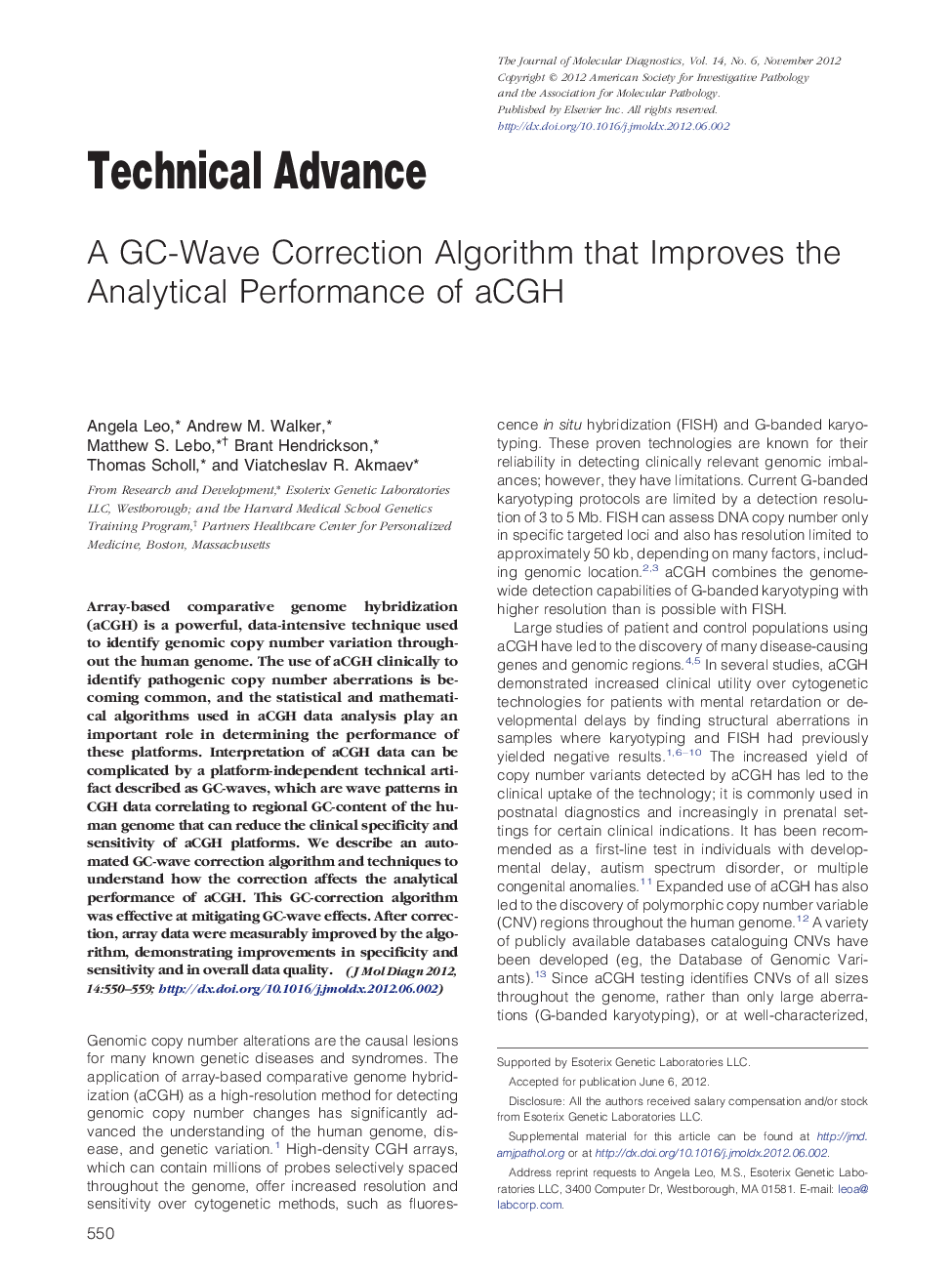| Article ID | Journal | Published Year | Pages | File Type |
|---|---|---|---|---|
| 6112889 | The Journal of Molecular Diagnostics | 2012 | 10 Pages |
Array-based comparative genome hybridization (aCGH) is a powerful, data-intensive technique used to identify genomic copy number variation throughout the human genome. The use of aCGH clinically to identify pathogenic copy number aberrations is becoming common, and the statistical and mathematical algorithms used in aCGH data analysis play an important role in determining the performance of these platforms. Interpretation of aCGH data can be complicated by a platform-independent technical artifact described as GC-waves, which are wave patterns in CGH data correlating to regional GC-content of the human genome that can reduce the clinical specificity and sensitivity of aCGH platforms. We describe an automated GC-wave correction algorithm and techniques to understand how the correction affects the analytical performance of aCGH. This GC-correction algorithm was effective at mitigating GC-wave effects. After correction, array data were measurably improved by the algorithm, demonstrating improvements in specificity and sensitivity and in overall data quality.
